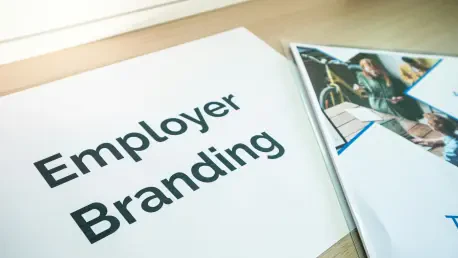Sofia Khaira is an expert in diversity, equity, and inclusion, focusing on helping businesses strengthen their talent management and development strategies. She is dedicated to fostering inclusive work environments and enhancing employer branding. Today, she provides insights into the vital role employer branding plays in attracting top talent and how plagiarism can detrimentally affect these efforts.
Why is employer branding important for companies in attracting top talent?
Employer branding is crucial because it’s the public’s perception of what it’s like to work at a company. In today’s job market, candidates are not just looking for a good salary; they want to align with a company’s values and culture. A strong employer brand helps a company stand out by showcasing what makes it unique and attractive, thus drawing in the best talent.
Other than salary, what elements do candidates consider when evaluating a potential employer?
Candidates often look beyond salary to understand a company’s work culture, its values, opportunities for growth, and how it supports diversity and inclusion. They want assurance that the company aligns with their personal and professional aspirations and offers a fulfilling work environment.
How can plagiarism negatively impact a company’s employer branding efforts?
Plagiarism can severely harm a company’s employer brand by damaging its reputation. If a company is found using content without permission, it portrays the company as untrustworthy and lacking originality. This perception can deter talent from engaging with the brand.
What type of reputational damage can occur from plagiarism?
When a company gets caught plagiarizing, it faces negative publicity, which can lead candidates to question its integrity. Being seen as unoriginal or dishonest can impact how both current and potential employees view the organization.
How can plagiarism result in legal and financial troubles for a company?
Using someone else’s creation without permission is a violation of copyright law. This can lead to legal actions, resulting in hefty fines, lawsuits, and even having to pull down the plagiarized material, which wastes resources and diverts focus from more productive business activities.
In what ways can using plagiarized content affect a company’s authenticity?
Authenticity in employer branding hinges on showcasing the true culture and values of a company. When content is plagiarized, it projects a false image and suggests that the company lacks its own voice or story, which can alienate potential candidates.
How might employee morale be affected when a company uses plagiarized content?
Employees could feel demotivated if they see that the company relies on copying rather than valuing their original ideas. It can lead to frustration and a loss of trust, impacting morale and productivity as employees may feel that their contributions aren’t respected or needed.
Can you provide examples of situations where plagiarism might occur in employer branding campaigns?
Plagiarism can occur when a job ad mirrors a competitor’s too closely, when campaign phrases are lifted from other brands, or when stock photos and quotes are used without proper credits. Companies need to be cautious about drawing the line between inspiration and imitation.
What steps can HR and marketing teams take to ensure their content is original?
It’s important for teams to foster an environment that encourages creativity and integrity. They should be educated on intellectual property rights to understand the importance of originality. Using plagiarism detection software can also help identify potential issues before publication.
How can education on intellectual property help teams avoid plagiarism?
Education helps teams understand the implications of using someone else’s work without consent. It also raises awareness about the legal and ethical responsibilities tied to producing original content, allowing teams to create materials that respect intellectual property laws.
What role does creativity play in developing original employer branding content?
Creativity is at the heart of original content creation. When teams are encouraged to think outside the box, they are more likely to generate unique ideas that accurately represent a company’s values and mission, making their employer branding more authentic and engaging.
What tools are available to help identify potential plagiarism in employer branding materials?
Tools like Copyscape, Turnitin, and Grammarly are effective for checking content against large databases to spot similarities with existing material. These tools can be crucial in identifying and addressing plagiarism before content goes live.
Why is it important to credit sources when using external content?
Crediting sources is a matter of integrity and legality. It gives due acknowledgment to the creators and avoids potential copyright infringement. It also demonstrates respect for others’ work and upholds the company’s ethical standards.
What are the benefits of collaborating with trusted content creators for employer branding campaigns?
Partnering with reputable content creators ensures access to high-quality, original materials. These professionals understand intellectual property laws and tailor content to authentically reflect a company’s unique values, enhancing the employer brand’s credibility.
How can a culture of integrity and creativity within HR and marketing teams help protect an employer brand from plagiarism risks?
A culture that prioritizes integrity encourages teams to value originality and ethics, reducing the likelihood of plagiarism. When creativity is woven into the company culture, teams are more likely to produce innovative content that genuinely represents the company.
Do you have any advice for our readers?
Cultivate a workplace environment that champions originality and integrity. By doing so, you not only protect your employer brand from the pitfalls of plagiarism but also create a more engaging and authentic narrative that resonates with potential talent.









